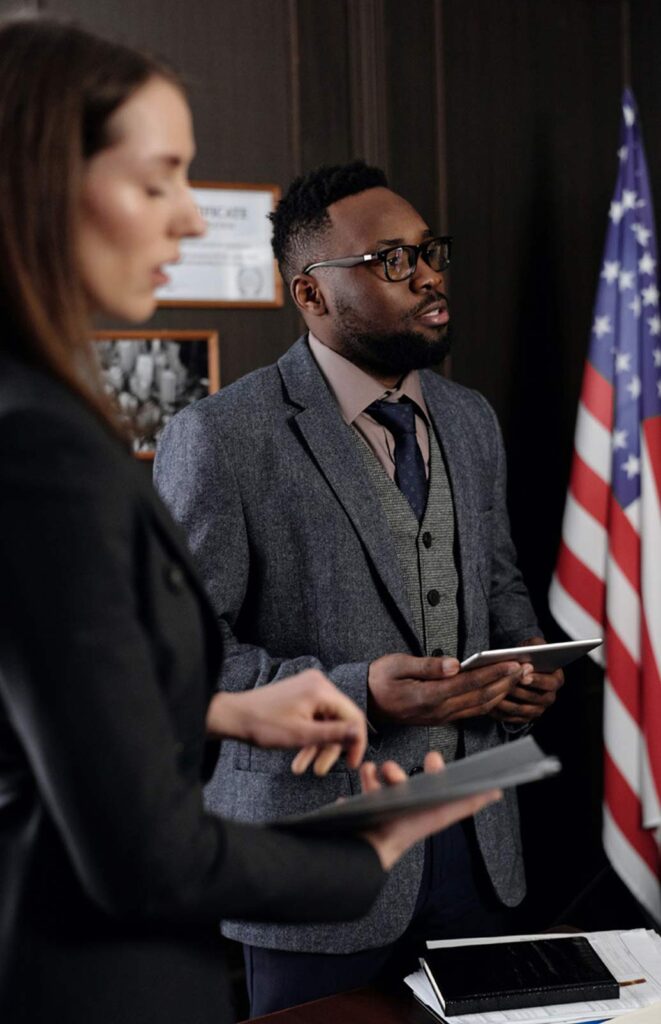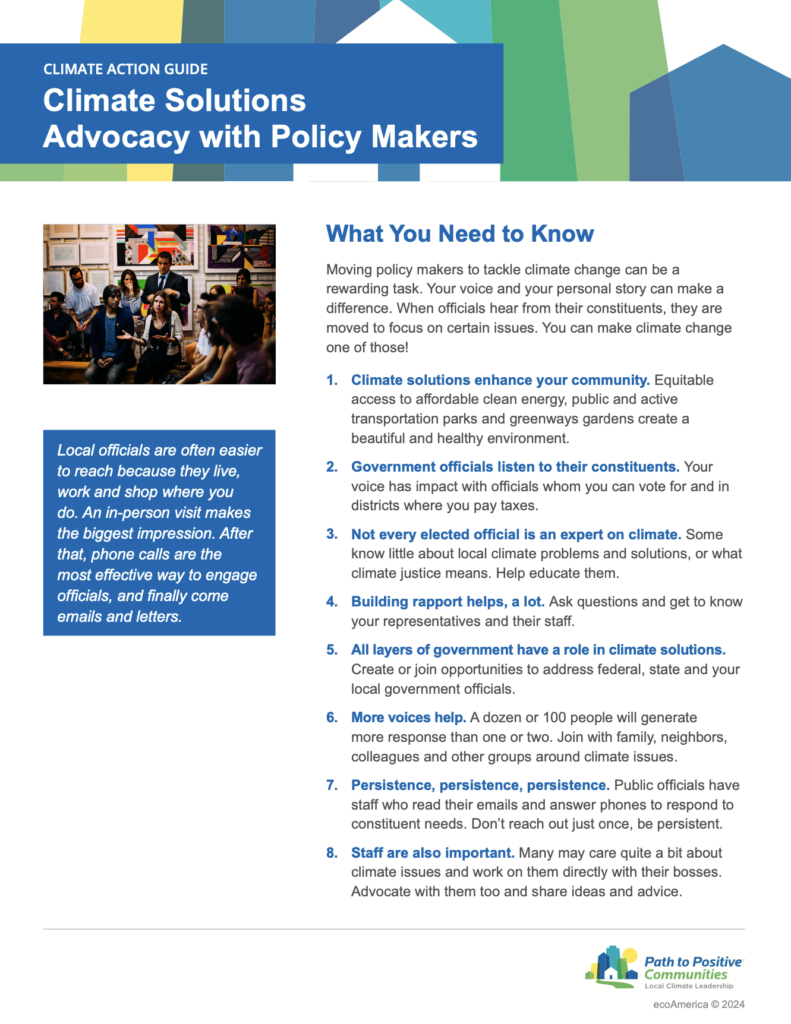
What You Need To Know
Moving policymakers to tackle climate change can be a rewarding task. Your voice and your personal story can make a difference. When officials hear from their constituents, they are moved to focus on certain issues. You can make climate change one of those!
- Climate solutions enhance your community. Equitable access to affordable clean energy, public and active transportation parks and greenways gardens create a beautiful and healthy environment.
- Government officials listen to their constituents. Your voice has impact with officials whom you can vote for and in districts where you pay taxes.
- Not every elected official is an expert on climate. Some know little about local climate problems and solutions, or what climate justice means. Help educate them.
- Building rapport helps, a lot. Ask questions and get to know your representatives and their staff.
- All layers of government have a role in climate solutions. Create or join opportunities to address federal, state and your local government officials.
- More voices help. A dozen or 100 people will generate more response than one or two. Join with family, neighbors, colleagues and other groups around climate issues.
- Persistence, persistence, persistence. Public officials have staff who read their emails and answer phones to respond to constituent needs. Don’t reach out just once, be persistent.
- Staff are also important. Many may care quite a bit about climate issues and work on them directly with their bosses. Advocate with them too and share ideas and advice.
What You Need To Do
We can all make our community better. The most important thing to do is to get started. Pick one or two actions from the list below and do them now. The rest will follow more easily.
- Know who represents you. It’s easy to find your local, state, and federal representative. Take a moment to learn their priorities and build your climate message around things that matter to them.
- Look for local connections and leverage points. Many things that address climate change, like greenways and electric car charging plans, are also local solutions. Engage on these issues and help officials make the connections.
- Don’t limit yourself. There are many steps to get to climate solutions, from funding to regulations, impact, and enforcement. Engage with the decision-makers where you can make the greatest difference.
- Be persistent and clear, and use several means of communication. Elected officials are busy. Use phones, email, their websites or Facebook pages, social media, and local newspapers. Connect right before they vote on a climate issue, so your ideas will be fresh in their mind.
- When you send an email, put your ask in the subject line. Officials sort their email by issue and often count supporters on each side of an issue. Be clear in your subject line what action or vote you are supporting so that you can be part of that count. Form letters are the least effective.
- Tell a personal story that brings the issue home. Choose issues you care about, and when you speak at a council or commission meeting you’ll make an impression that officials will remember.
- Say thank you. When your representative does the right thing, acknowledge their actions, and show gratitude.
- Join a local organization working on climate issues. They can amplify your voice while you support their mission. If there isn’t one in your area, get your family and neighborhood to work together on climate advocacy.
Our democracy responds to what community members care about, through advocacy, engagement, and voting. Add your voice to decisions that affect you! When you engage with policy makers, you will also become more informed, and may find out about other issues important to your community as well.

Local officials are often easier to reach because they live, work and shop where you do. An in-person visit makes the biggest impression. After that, phone calls are the most effective way to engage officials, and finally come emails and letters.

